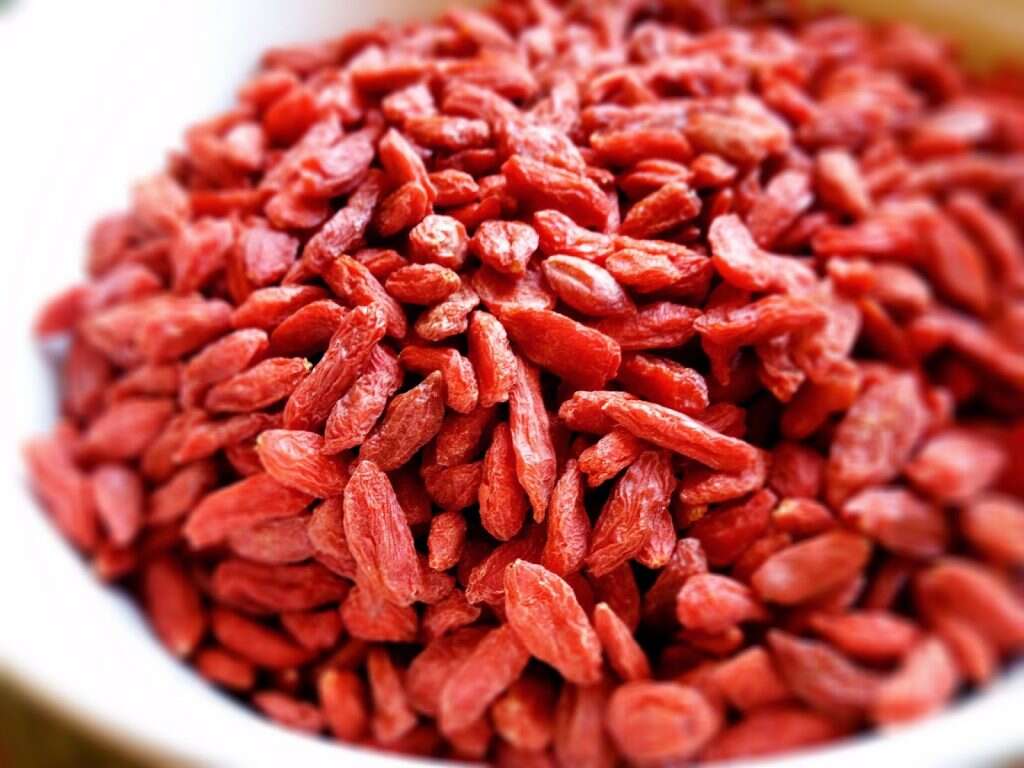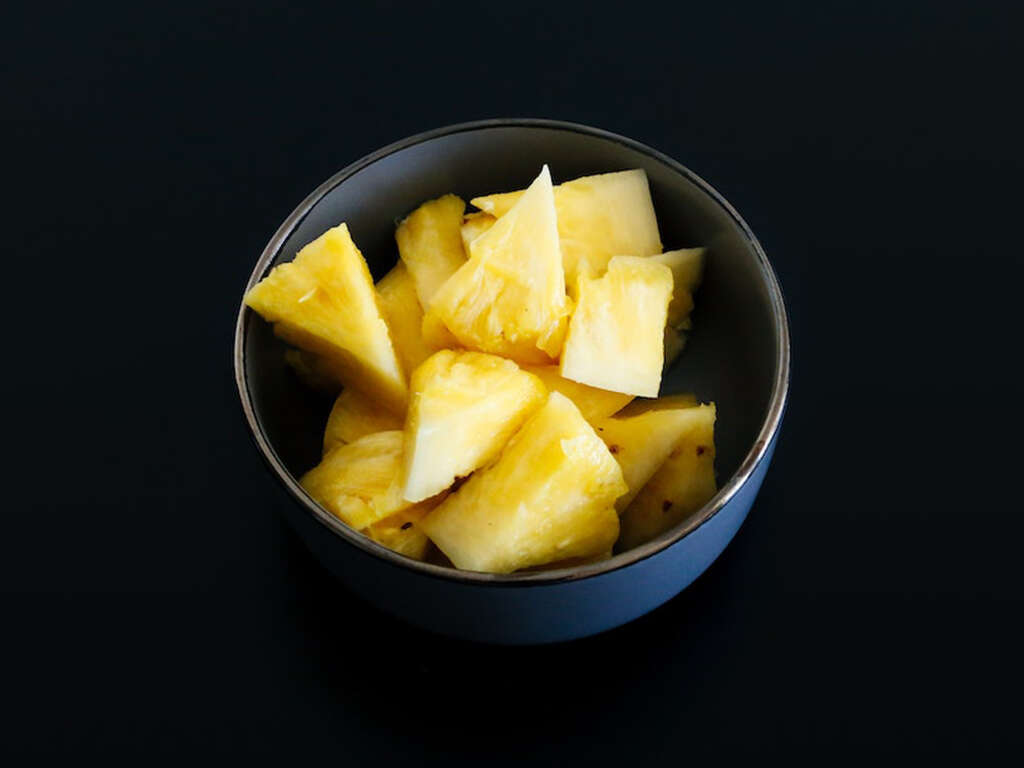10 Benefits of Goji Berries
High blood pressure is a significant catalyst of many killer diseases, including heart attack, stroke, and chronic kidney diseases.
The phytonutrients found in goji berries are believed to possess antihypertensive effects. In other words, they reduce blood pressure.

Goji Berries Benefit #1: Lower Blood Pressure
It is believed that consuming goji berries increases the production of nitric oxide, which signals a molecule that helps the blood vessels relax and dilate. When consuming goji berries for therapeutic reasons, quantity is important.
One ounce or more is sufficient for reducing blood pressure.

Goji Berries Benefit #2: Liver Protectant
Fat accumulates in the liver due to alcohol abuse, obesity, diabetes, or other chronic conditions. Goji berries contain betaine, an amino acid known for its liver protectant properties. Betaine assists in lipid digestion to break down and remove fats from the liver.
Recent studies have shown the positive effects of betaine on liver health, such as normalized ALT and serum cholesterol levels.
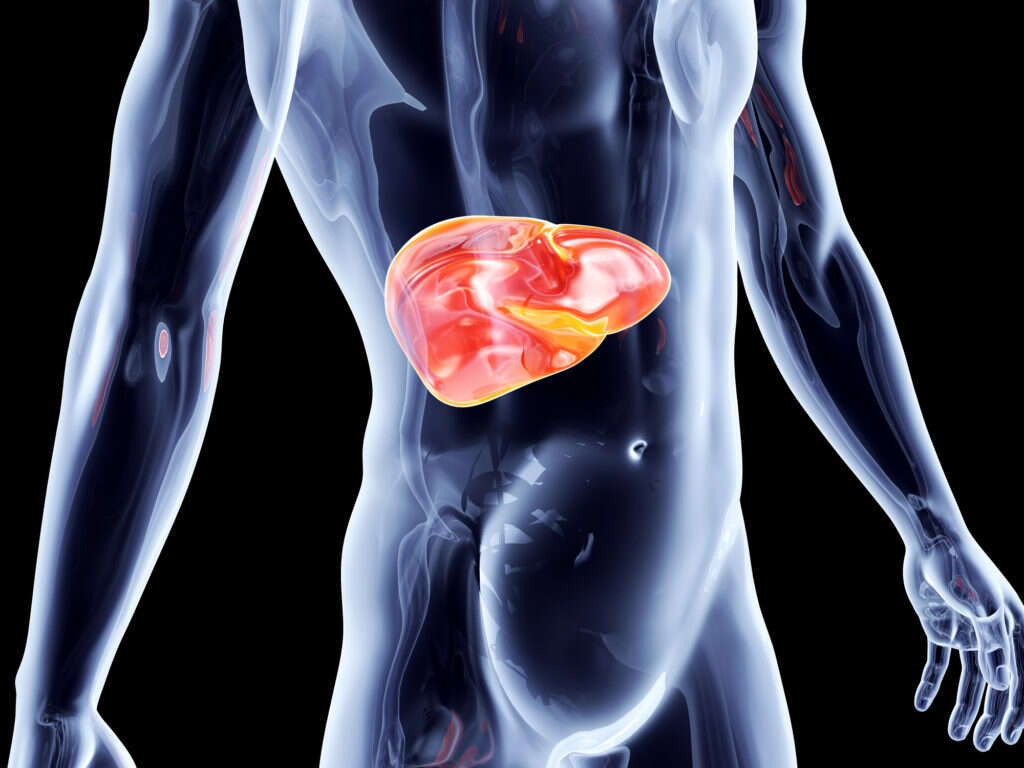
Goji Berries Benefit #3: Improve Cholesterol Status
High triglyceride levels directly correlate to an increased risk for stroke in adults and the elderly. In addition to betaine, goji berries are a source of B vitamins such as niacin. Niacin has been known to reduce triglyceride and LDL cholesterol levels in the bloodstream.
Niacin works to remove triglycerides the same way it reduces LDL cholesterol, aiding in the transport and metabolizing of lipids in the liver. Statins are better at reducing triglyceride and LDL cholesterol levels; however, niacin also increases HDL. Although niacin is not necessarily the primary go-to vitamin for reducing triglycerides, it is commonly used in conjunction with other medications.
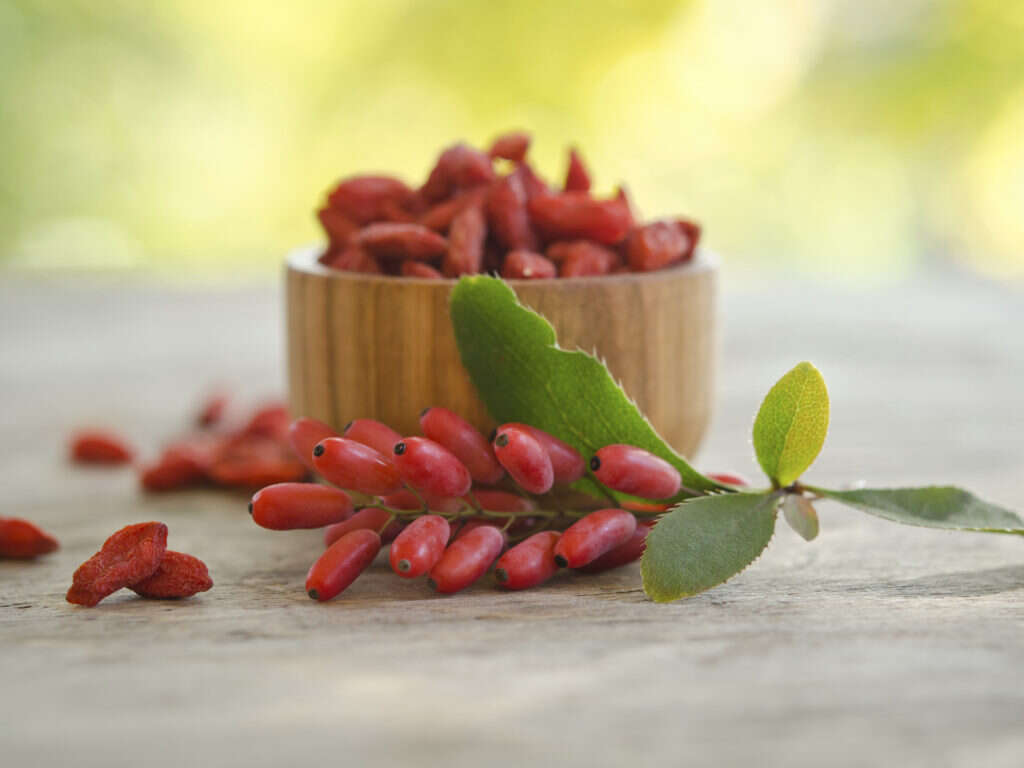
Goji Berries Benefit #4: Eyesight
Goji berries contain the carotenoids zeaxanthin and beta-carotene, with higher concentrations of the former. Zeaxanthin is a xanthophyll, an oxygenated carotenoid with antioxidant and blue light–absorbing properties. Since zeaxanthin is concentrated within the central macula of the human retina, goji berries have perceived benefits for eyesight.
Zeaxanthin, like other carotenoids, can protect the eyes against light-induced damage, cataract development, and age-related macular degeneration (ARMD). ARMD leads to gradually blurring vision, making it harder to read, write, recognize faces, and drive. Although zeaxanthin is found in many vegetables and fruits at low levels, goji berries are the best-known natural source.

Goji Berries Benefit #5: Plant Source of Iron
Anemia is one of the most common health conditions, with more than three million Americans affected. It occurs when there is a decreased amount of red blood cells circulating in the body. Symptoms of anemia include fatigue, headache, and pale skin.
There are many different types of anemia. Iron-deficiency anemia is the most common form. Fortunately, goji berries contain bioavailable iron. Eating a few ounces of goji berries per day can decrease and eradicate iron-deficiency symptoms. One hundred grams of goji berries provide 4 mg of iron, making it a good vegan iron source.
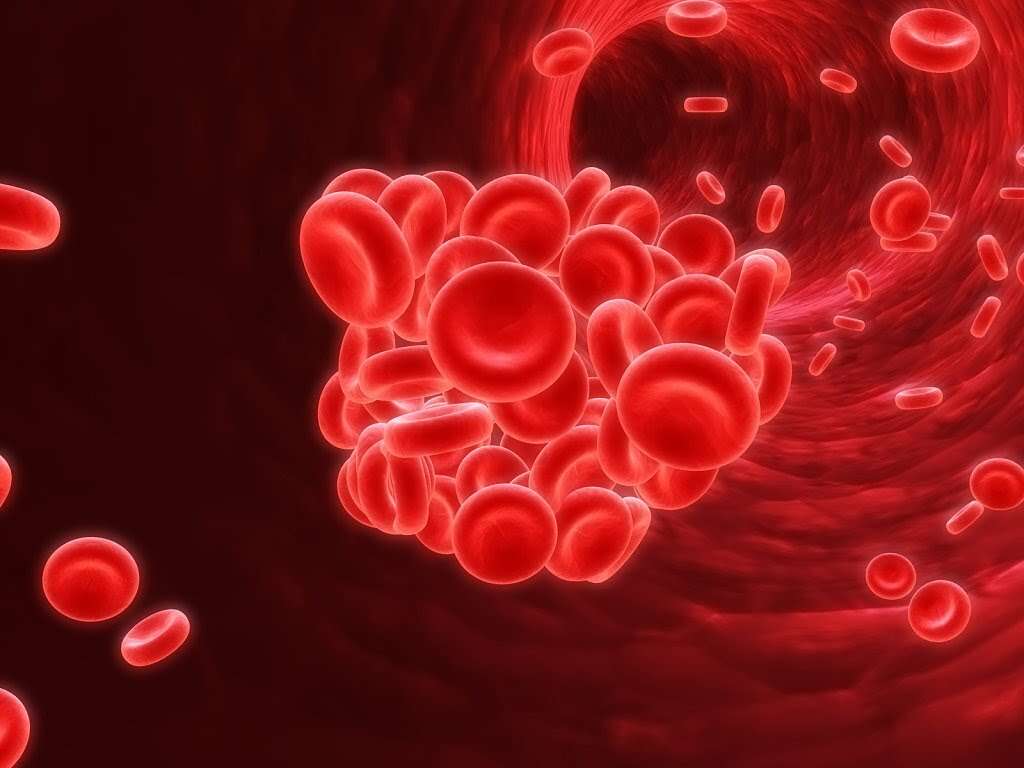
Goji Berries Benefit #6: Immune System
Immune cells are known to be particularly sensitive to oxidative stress because their plasma membranes contain a high percentage of polyunsaturated fatty acids. Goji berries contain beta-carotene and lycium barbarum polysaccharides (LBP), which exert an immune-enhancing effect.
Beta-carotene is a powerful phytonutrient that boosts the immune system’s ability to fight infections. LBP has a similar chemical structure to the immune-stimulating compounds found in echinacea.

Goji Berries Benefit #7: Fiber
You should eat twenty-five to thirty grams of fiber per day to avoid constipation. One hundred grams of dried goji berries have thirteen grams of fiber. Historically, goji berries have been used to relieve constipation and improve overall digestive health.
The soluble fiber content of goji berries makes it a powerhouse food for regulating hunger and bulking stool sizes for a healthier colon.

Goji Berries Benefit #8: Bone Health
Far too many Americans do not consume enough calcium daily. This can lead to bone loss, low bone density, osteoporosis, and even broken bones. Minerals found in goji berries, such as iron and calcium, improve bone structure and mineral density, aiding in osteoporosis prevention.
One hundred grams of dried goji berries provide 190 mg of calcium (19 percent of the daily value). The calcium in goji berries is highly bioavailable, meaning the body can easily obtain and use the calcium present.

Goji Berries Benefit #9: Skin Health
Low intake of vitamin C can lead to wrinkles, aging skin, blemishes, and other adverse skin problems. Goji berries are a promising source of natural vitamin C. In fact, they have more vitamin C than oranges. In addition, the levels of acid found in goji berries are similar to those found in lemons, making goji berries one of the richest sources of ascorbic acid.
Some studies have shown that vitamin C may even help prevent and treat ultraviolet-induced photodamage to skin cells. Vitamin C also significantly helps produce collagen. Collagen is required for skin cells to form and function properly. Goji berries thereby rejuvenate the health and appearance of the skin.

Goji Berries Benefit #10: Protein
Protein is the macronutrient needed for building muscle mass and facilitating many chemical reactions in the body. While the human body can produce some amino acids, others must come from food. Depending on your health status, age, and activity level, protein needs can range from 0.8 grams to 2.0 grams per kilogram of body weight for very active athletes.
The average American needs to eat 1.0 to 1.2 grams of protein per kilogram of body weight daily. One cup of goji berries has approximately twelve grams of protein, comprised of all the essential amino acids.
